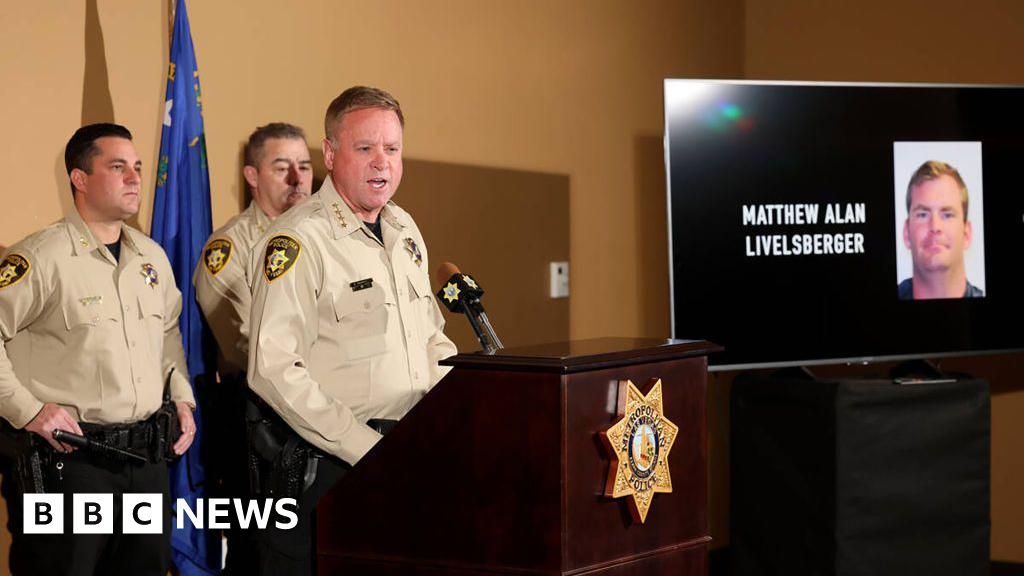The individual found in the Tesla Cybertruck that exploded outside the Trump Hotel in Las Vegas on Wednesday morning reportedly held no ill will toward President-elect Donald Trump and may have been dealing with post-traumatic stress disorder (PTSD), according to the FBI.
Matthew Livelsberger, an active-duty U.S. Army member from Colorado, was discovered deceased inside the vehicle, which officials stated was also linked to various family and personal issues he faced.
Authorities highlighted that the tragic truck incident in New Orleans, which claimed 14 lives earlier on New Year’s Day, is not connected to the Las Vegas explosion.
Law enforcement officials characterized the Las Vegas explosion as a “tragic case of suicide.”
“There is no evidence linking these two incidents,” stated FBI agent Spencer Evans during a press briefing on Friday, where officials provided updates on the case.
“Investigative efforts have revealed that he likely suffered from PTSD according to Army information, and there were also indications of various personal issues in his life that could have contributed,” Mr. Evans explained.
Evidence from Mr. Livelsberger’s phone, including a series of personal notes, suggests that at 37, he struggled with PTSD stemming from his combat experiences, officials indicated.
His body was found within the burnt Tesla, which had exploded due to fireworks he had acquired while traveling from Colorado to Las Vegas.
Authorities confirmed his identity through a DNA sample taken from a family member.
Additionally, police reported that he appeared to have suffered a self-inflicted gunshot wound.
In the digital notes found by police, Livelsberger expressed political frustrations, urging his fellow Army officers to critique military leadership.
In one note, he specifically stated that the incident was “not a terrorist attack” but rather a “wake-up call.”
Mr. Livelsberger was a decorated Special Forces intelligence sergeant stationed in Germany but was on approved leave during the explosion.
His father informed CBS News, a partner of BBC in the U.S., that his son had traveled to Colorado to visit his wife and their eight-month-old daughter.
He mentioned that their last conversation was during Christmas, and nothing seemed out of the ordinary.
Alicia Arritt, Mr. Livelsberger’s ex-girlfriend, revealed to The Washington Post that he had disclosed suffering a traumatic brain injury during his deployment. She mentioned that he frequently struggled with memory issues, concentration, and intense guilt regarding his actions in combat.
The Daily Beast reported that Mr. Livelsberger was an ardent supporter of Trump, with a senior law enforcement official stating he had voted for Trump in the recent election after speaking with his family.
Law enforcement was able to trace his movements leading up to the incident using surveillance footage and data obtained from the Tesla itself.
They revealed that Mr. Livelsberger had rented the Tesla Cybertruck from the mobile app Turo in Colorado on December 28 and drove over 800 miles to Las Vegas. He also legally purchased two firearms during this time, which were later found inside the vehicle.
Las Vegas Sheriff Kevin McMahill noted that the reasons behind Mr. Livelsberger’s choice of location for the explosion outside the Trump Hotel remain unclear, though evidence suggests it was among several sites he had contemplated.
Minor injuries were reported among seven individuals due to the blast, all of whom have since been released from the hospital, according to Sheriff McMahill.
He further stated that the investigation is ongoing, and that authorities are just beginning to sift through the information retrieved from the man’s devices.
If you have been affected by any of the issues raised in this story, you can visit BBC Action Line. Help and support outside the UK can be found at Befrienders Worldwide or you can call the U.S. Suicide and Crisis Lifeline at 988.
